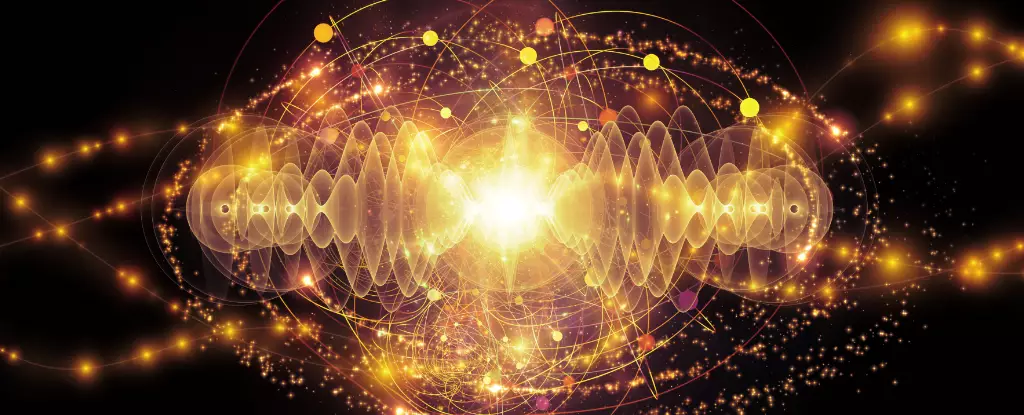In the world of quantum mechanics, where traditional laws of physics dissolve into probabilistic events, researchers are discovering ideas that challenge our understanding of theft and value. A relatively recent concept introduced by quantum computing researchers Wim van Dam and Patrick Hayden, termed “embezzling entanglement,” suggests a method by which quantum states can be manipulated undetected. This idea resonates deeply with concepts of ownership, manipulation, and the essence of what makes a system detectable or undetectable—a stark contrast to embezzlement as we know it in the classical world. The theoretical work from scholars at Leibniz University Hannover further expands on this notion, suggesting that certain fields may act as key players in this sophisticated form of ‘theft’ within the quantum realm.
To understand this unconventional form of embezzlement, one must delve into the peculiarities associated with quantum states. Unlike classical states, which exhibit clear characteristics such as position and momentum, quantum states exist in a realm of uncertainty, shifting between potentialities until measured. The analogy of a casino serves well here; the environment is defined by strict laws, yet the outcomes hinge upon probabilities and uncertainties. Just as a player can manipulate game conditions, interactions within the quantum world can disrupt established states, creating unpredictability and chaos.
Entanglement emerges as a powerful tool within this framework, allowing quantum states to interact in ways that transcend traditional algorithms and computations. When utilized effectively, entanglement can merge probabilities from multiple systems, crafting solutions to complex problems that are simply infeasible through classical means. However, this manipulation of quantum states carries risks; if done carelessly, it can obliterate the very information one seeks to preserve.
What makes the concept of embezzling entanglement particularly compelling is its mathematical foundation. Not all quantum transformations are created equal, and certain manipulations preserve the integrity of the quantum state, resembling a reversible reaction in chemistry. Within this context, the work of researchers like Lauritz van Luijk and his colleagues draws attention to the potential for distinguishing between more subtle changes versus those that irreversibly alter a system’s state.
Their findings offer insight into the ways that quantum mechanics and general relativity intersect, leading to profound implications for the nature of entanglement. The emergence of catalysts within these interactions presents a unique opportunity; they enable quantum operations to proceed without leaving detectable traces of disturbance—a hallmark of the “perfect crime” described metaphorically by van Luijk.
Although the idea of embezzling entanglement intrigues theorists, practical applications remain elusive. Currently, the principles primarily offer an abstract mathematical framework rather than concrete methods or systems to achieve such a quantum heist. Identifying a physical field that can carry out this embezzlement without disturbing surrounding particles is paramount for translating theory into practice. This quest poses a significant challenge for physicists; unearthing the necessary conditions to bring these concepts to fruition could unravel new dimensions of quantum computing and information processing.
The prospect of spontaneous quantum entanglement occurring in what seems to be pure nothingness opens the door to a realm of philosophical and scientific inquiry. If various forms of theft happen subtly within quantum systems, what does that imply for the nature of reality, and how do we define ownership and manipulation? As we explore further the depths of engaging with the quantum world, the distinction between creation and theft may become increasingly blurred.
In closing, the enigmatic notion of embezzling entanglement acts as a catalyst not just for new types of quantum experiments, but also for redefining our understanding of laws governing reality. While the exploration remains highly theoretical, the implications are vast, potentially ushering in a new paradigm in quantum physics and the technologically driven world beyond. The challenge now lies in transitioning these tantalizing theories from the realm of abstract mathematics into tangible, real-world outcomes—where the complexities of nature may be controlled and harnessed in ways we have yet to imagine.



Leave a Reply